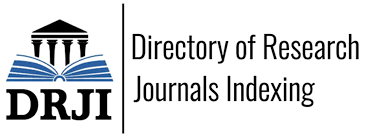Pawon as a main education chamber of multicultural values among Tenggerese society
DOI:
https://doi.org/10.18326/ijoresh.v1i1.99-122Keywords:
Pawon, multicultural values, cultural and religious diversity, Islamic educationAbstract
Family education is very strategic because it is the first and foremost education carried out continuously in large portions. This study analyzed the pawon as a place for children’s education regarding how it was carried out and what values were taught. The author focused on discussing the values of multicultural Islamic education. It was conducted using a qualitative method, so the data was qualitative, collected through interviews, observation, and documentation. In the Tenggerese society, the pawon is a fireplace and can be interpreted as a kitchen. The Tenggerese, who like to gather in the pawon, are very strategic in carrying out education in the family because parents will be free to communicate with children in the Tenggerese tribal family. This teaching is done through various methods, including examples, traditional advice, and methods of attention or supervision. The pawon is so important and valuable as it becomes an effective place to internalize the values of multicultural education from an Islamic perspective which is carried out through those methods mentioned. These values include a) al-mushawarah (democracy), al-musawah (equality), al-‘adl (justice), habl min an-nas (humanity), al-ta’aruf (knowing each other), al-ta’awun (cooperation), al-salam (peace), al-tasamuh (tolerance), al-ukhuwwah (brotherhood). With these values, it is hoped that children will be ready to live in a multicultural society, especially in Tengger, where significant differences in religion and culture exist.
Downloads
Published
How to Cite
Issue
Section
License
Copyright
Authors who publish with Indonesian Journal of Religion, Spirituality, and Humanity agree to the following terms:
- Authors retain copyright and grant the journal right of first publication with the work simultaneously licensed under a Creative Commons Attribution License (CC BY-SA 4.0)that allows others to share the work with an acknowledgement of the work's authorship and initial publication in this journal.
- Authors have the right to enter into separate, additional contractual arrangements for the non-exclusive distribution of the journal's published version of the work (e.g., post it to an institutional repository or publish it in a book), with an acknowledgment of its initial publication in this journal.
- Authors are permitted and encouraged to post their work online (e.g., in institutional repositories or on their website) prior to and during the submission process, as it can lead to productive exchanges, as well as earlier and greater citation of published work.
Licensing
This work is licensed under a Creative Commons Attribution-ShareAlike 4.0 International License.









